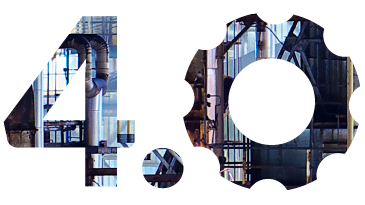In my blog post following Global ManuChem Strategies 2017, I wrote, “Technology is advancing more rapidly than our ability to adopt it effectively. Producers need to focus on connecting technology to business processes and people to guide investment decisions and maximize value.”
Having just keynoted at the 2018 event (which focused on “Digitization in Chemicals – Where is the Value?”) it is fair to say that the word from last year’s blog that resonated most strongly this year is “people.”
In our work with large, multinational chemicals companies, we repeatedly find that those at the top of the operational excellence curve have reached that position via a strong organizational focus on employing technology in support of operational excellence and workforce enablement.
In the last 12 months, the digital revolution has gained momentum, while I have added Amazon’s Alexa to my household. This addition made me think about advances in technology and its value to our daily lives — both at home and at work. Across the process industries, there is an increasing pressure on the manufacturing process and the physical assets used within it. The question today is increasingly: Where is the value?
What if we could ask Alexa questions like: “When will this piece of equipment fail?” or “What is the key asset in a particular process?” or “How can my rigorous plant models prevent a column from flooding?” or “How do I update my SAP in to provide full inventory visibility?” or “How do I optimise production of a certain grade?”
All of these are, in fact, questions that AspenTech can answer — today. We are helping our customers create value based on proven technologies in a number of innovative ways. Today’s technology (for example, mobile devices, along with cloud and edge computing) means that this innovation can be deployed rapidly across the entire enterprise.
There are high expectations, and a lot of hype, around digital transformation (or Industry 4.0 or digitization — call it what you will), and executives around the world are discussing exactly what digital transformation means for their organization. It is a discussion worth having, as the World Economic Forum, for example, has stated that $1 trillion in value is available to the oil and gas industry if it achieves digitization. But, additionally, respected consultants Deloitte and McKinsey have warned that some disillusionment and challenges have been encountered by enterprises who have embraced this trend aggressively.
However, looking at the key foundations to digital transformation, they all have an underlying common theme: the automation of knowledge. Organizations now need to focus on the concept of the “digital worker”— an employee who is connected to and enabled by technology — and investigate how technological advances can help people do their jobs better and create more value.
Companies in the process industries can create this value by adopting a relentless focus on operational excellence, which should include a strong organizational focus, especially since, as Alexa has shown me, technology is playing an increasingly significant role in our lives.
To learn more about how companies are leveraging modern technology to drive operational and organizational excellence — and boost profitability — please read this recent executive brief by AspenTech President and CEO Antonio Pietri: The Time is Right for Optimum Reliability: Capital-Intensive Industries and Asset Performance Management.






Leave A Comment